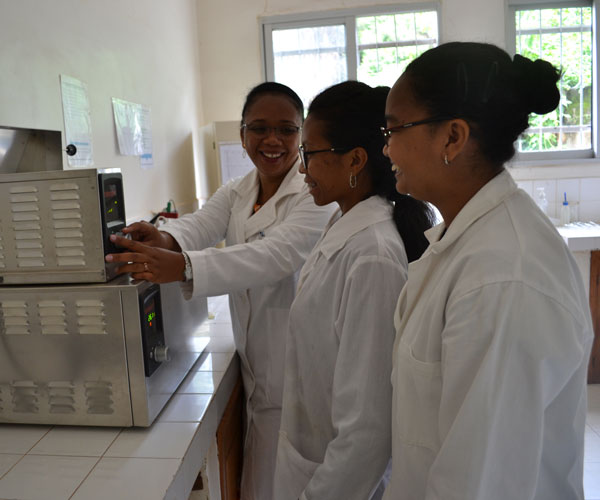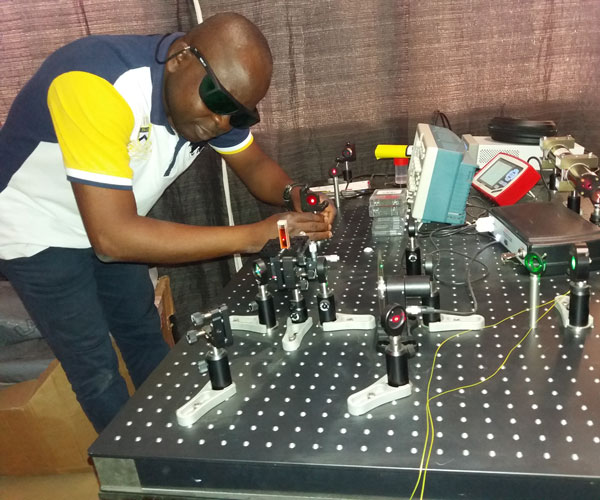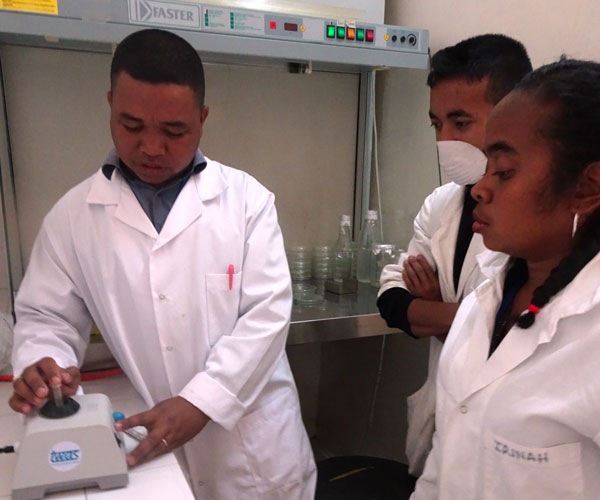
It all started as a brilliant game: playing a ‘networking exercise’ to discover common goals in scientific interests, as well as complementary and overlapping interests. It was 2016, and the exercise was proposed at the first Research Grants (RG) Conference held in Trieste, Italy, where TWAS is headquartered. More than 50 TWAS research grantees from the global South were in the audience.
This is how the TWAS Research Links network was conceived. The game disclosed a number of unmet needs that were preventing participants’ scientific capacity from taking off, so the exercise turned into a project: establishing a user-friendly virtual hub where professional relationships and scientific growth could be built. One year after its launch in February 2020, the portal is a vibrant resource conn ecting 320 TWAS research grantees from almost 30 countries, with each user having a profile visible to the other grantees, which includes information such as field of interest and skills.
ecting 320 TWAS research grantees from almost 30 countries, with each user having a profile visible to the other grantees, which includes information such as field of interest and skills.
"Research often tackles complex problems. This is particularly true when scientists are from the global South, where science cannot receive enough funding and research facility may not be available ", said TWAS programme coordinator Max Paoli. "With these challenges in mind, we realized that to achieve meaningful changes, we should adopt an interdisciplinary approach. Hence the idea of a virtual place, easy to access, where collaborations can open the door to new ideas and innovation".
The 2016 Trieste Conference was indeed a game-changer for the RG programme. The positive feedback received by the attendees fuelled a surge in enthusiasm while shedding light on the need of building soft skills, establishing new partnerships and collaborations, and having an online portal to shorten geographical distances and share data and competencies.
A second spark to the establishment of the TWAS Research Links came in 2017, through an initiative called Research Grants Regional Conferences. Grants awardees were exposed to stimuli and skills normally included in standard university curricula through two workshops, one held in Tanzania in 2018, and one in Nepal in 2019, both endorsed by the Swedish International Development Cooperation Agency's (Sida).
"Both Tanzania and Nepal events were instrumental to refine and improve the networking exercise. This made a decisive impact on the achievement of the TWAS Research Links, between 2019 and February 2020, when the portal was officially launched", recalled Paoli.
The exercise turned out very productive. A mathematician from Bangladesh, Md Kamrujjaman, with an outstanding record of publications — eight papers published in a short time frame, all within the grant duration — joined forces with Haider Ali Biswas, a mathematician and a professor from Khulna University, also in Bangladesh, to work on a project aimed at attaining optimal control of emerging diseases in their country. Under their combined supervision, one student started her PhD research.
The networking exercise was also central to building mutual support by sharing techniques and writing joint grant proposals. This was the case of Perera Hetti Arachchige from Sri Lanka, who started a collaboration on the development of thin films for photovoltaics with Bhim Prasad Kafle, an assistant professor from Nepal: now they are exchanging their skills on different lab techniques with a positive ripple effect on their research achievements.
Included in the TWAS Research Links is also a blog where participants publish a high variety of posts: Calls range from sharing expertise, equipment, free resources, vacancy notices and links to online repositories to searching for collaboration, up to the launch of scientific peer-reviewed journals.
Successful links and collaborations have thus been established, for example, between scientists from the Republic of Korea and Bangladesh, Viet Nam and India, Rwanda and Bangladesh.
Scattered among the work messages, there are also thank-you posts acknowledging the help that TWAS has provided. "Through this portal, TWAS met at least four important objectives", added Paoli. "It fuelled mentorships, eased conference and workshops dissemination, provided support for publications and, most importantly, paved the way to an international network that we expect will grow further in the months ahead".
The TWAS Research Links is one of the projects of the TWAS Research Grants Programme, which was established in 1986, as one of the earliest launched by TWAS. Sida's financial support started in 1991: the Agency distributes almost $1 million in research grants annually to equip laboratories and support publications, and, between 1986 and 2020, awarded more than 2,630 grants, planning to continue to do so in the years ahead.
Cristina Serra

